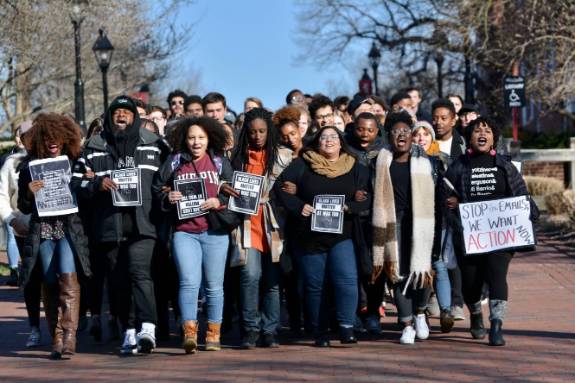
MAJORS
LEARN BY DOING
- Legislative Intern - MD General Assembly
- Internship at The Hill newspaper
EXTRACURRICULAR ACTIVITIES
- Student Government Association
- Alpha Omicron Pi
SUPPORT FROM DONOR PROGRAM
- Cater Society of Junior Fellows
- Roy Ans Research Fellowship

The Power of Community
Kat DeSantis
Class of 2022 • Lancaster, PennsylvaniaMAJORS
LEARN BY DOING
- Internship at The Hill newspaper
EXTRACURRICULAR ACTIVITIES
- Student Government Association
- Alpha Omicron Pi
SUPPORT FROM DONOR PROGRAM
- Cater Society of Junior Fellows
- Roy Ans Research Fellowship
A Maryland General Assembly internship, a Cater Fellows grant to study how political gridlock affected policy relating to COVID-19, and an internship with The Hill’s coronavirus report team were just the beginning for Kat, who began her term of Student Government Association president in March 2021.
“The biggest thing on my mind as a student leader is building community,” Kat says. “In addition to the disruption caused by COVID-19, the College leadership is in transition. It’s hard for students to know the administration. I’m really looking forward to having a president who is engaged and invested in Washington College, and who wants to include us [the students] in the big conversations.”
Kat’s scholarship looks beyond the college campus into the Jewish American experience. Supported by a Roy Ans Research Fellowship on the Study of Jewish Life and Thought, Kat developed a paper, published in the Washington College Review, about rise of antisemitism and threats of violence against the Jewish community. Her paper, Mitigating Risk While Maintaining Community: An Examination of the Effect of the Rise of Antisemitism on the American Reform Jewish Community, draws on three case studies to evaluate how security measures have changed the way Jews gather and celebrate their faith. She conducted interviews with congregants at Temple Micah in Washington, D.C., temple B’Nai Israel in Easton, Maryland, and her home synagogue in Lancaster, Pennsylvania, Congregation Shaarai Shomayim.
“Much of Jewish ritual and modern practice has been shaped by typical societal evolution,” Kat writes, “but certain aspects of the American Jewish experience have been shaped by pressure and fear related to Antisemitism. Most recently, Jews have had to reimagine their traditional religious and cultural practice, in many cases having to wonder whether there are risks associated with these actions and how to mitigate these risks. What are the potential dangers at this gathering, celebration, holiday, or activity of daily life? What are the implications of my risk assessment and my ability to fully embody my Jewish values?”
Increased surveillance equipment, cybersecurity measures, evacuation plans, and armed security personnel are now more common as synagogues prepare for the unimaginable.
“There are different responses from members of the Jewish community: some react with pride and solidarity, while others prefer to keep their practice private and stay under the radar,” Kat writes.” Some have responded by reconnecting with their local synagogues or attending rallies or community gatherings. These differing responses to the surge in Antisemitism has impacted Jewish identity in dramatic ways.… [And] although Jewish attitudes might shift with the response to growing Antisemitism, there is a resounding sense of pride that remains in Jewish communities.”

